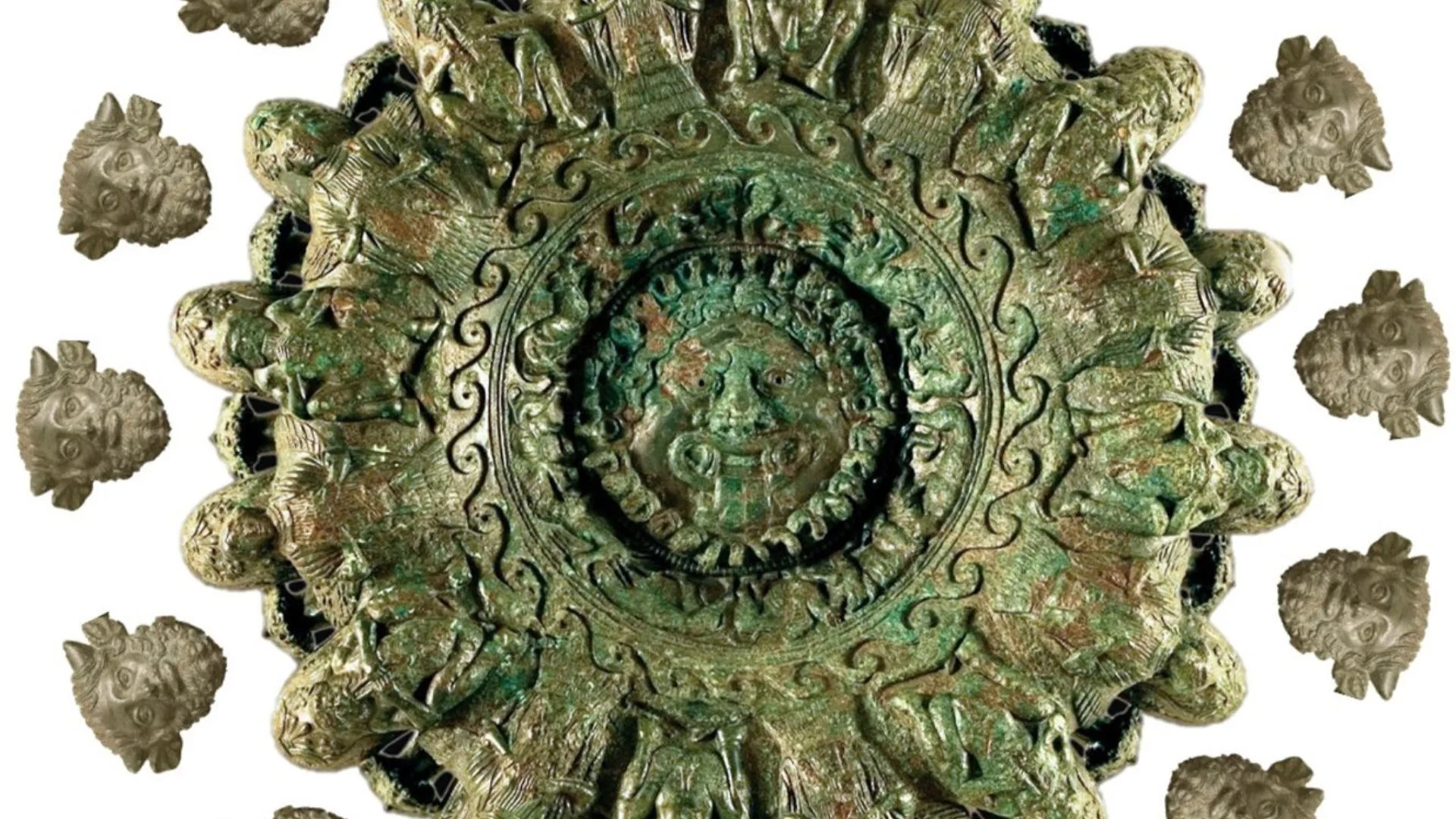Shrouded in mystery since its discovery in central Italy in 1840, the Cortona oil lamp has recently revealed more insights into its date and purpose, with researchers suggesting the artifact has links to an ancient Dionysian cult.
The 57kg heavy bronze hanging lamp was found in an isolated ditch near the Tuscan town of Cortona along with an inscribed bronze plaque. The object has conventionally been dated to the 4th c. BC but where it was made and what it was made for has been the subject of debate for decades as there’s very little to compare it to.
New research by University of Melbourne PhD student Ronak Alburz and Associate Professor Gijs Willem Tol, however, suggests the artefact is far older than previously thought, dating to the Late Archaic period around 480BCE.
In addition, following a thorough re-examination of the lamp’s intricate decoration, these scholars claim the lamp’s main decorative element – 16 bull-horned figures – have long been mistaken as the Greek river god Acheloos. Alburz and Tol say literary sources and new iconographic evidence indicate the decoration of the lamp represents the Dionysian thiasus, the ecstatic retinue of the Greek god of wine and pleasure.
Their research findings were recently published in De Gruyter’s Etruscan and Italic Studies. Alburz said “the lamp was probably an object associated with the mystery cult of Dionysus. Its decoration represents the Dionysian thiasus, perhaps engaged in a cultic performance in the cosmos of the mysteries in celebration of Dionysus.”
